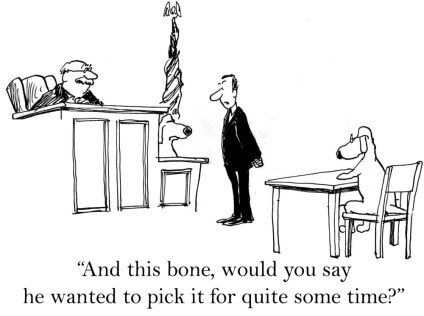Are You Eligible For Bankruptcy?
For many people, the decision to file for
bankruptcy is a difficult one. You have to weigh considerations including the damage that bankruptcy would cause to your credit score, as well as any feelings of personal pride or principle that might have been holding you back from seeking this last recourse. Once you have decided to take action to get out of debt for good, there is still another important question that must be answered: Do you even qualify for bankruptcy? The U.S. government provides this powerful legal shelter to those who need it, but also places tight restrictions to prevent anyone from abusing the right to declare bankruptcy.
The Means Test For Chapter 7 Bankruptcy
Before you can move forward with declaring bankruptcy under
Chapter 7, you will submit information to your attorney regarding your income for the six months prior to filing your case for purposes of what is called the Means Test. The means test was incorporated into federal bankruptcy law by the Bankruptcy Abuse Prevention and Consumer Protection Act of 2005, and it is used to help provide eligibility standards for qualifying for chapter 7 cases. The court will consider the last six calendar months of income in comparison to the median family income for a family of your size in the county in which you live. If your income is over that threshold, there is an in-depth financial analysis used to help determine whether you will be able to file chapter 7 or not. So, just because your income is greater than a certain amount does not necessarily mean you won’t still qualify to file chapter 7. You may find that, after the financial analysis, you are absolutely qualified to file chapter 7. Further, even if after the financial analysis the means test seems to indicate you shouldn’t be able to file chapter 7, there may be any number of facts or circumstances which would allow you to still qualify to file chapter 7. That is why it is important to consult with a skilled bankruptcy attorney who knows what questions to ask and how to properly navigate the means test.
Chapter 13 Eligibility
Individuals who are not eligible to file under Chapter 7 generally qualify for
Chapter 13 bankruptcy. The purpose of the means test in a chapter 13 case is quite different than in chapter 7. In chapter 13, the means test is utilized to determine (1) whether your case must be 3 or 5 years, i.e., your “commitment period” and (2) how much the unsecured creditors must receive over that period of time. If your unsecured debts, such as for credit cards, are less than $360,475 and your secured debts, such as for your home mortgage, are less than $1,081,400, then you should be eligible for Chapter 13. These figures are adjusted from time to time based on calculations of the cost of living in the United States as reflected by the Consumer Price Index. There is an additional requirement that you must have received credit counseling from a government-approved agency within the 180 days immediately preceding the date when you file your petition. Looking for an attorney for bankruptcy in Katy? To learn which type of bankruptcy is best for you, and to take your first steps toward getting out of debt for good,
contact us today at the Law Office of Corey L. Mills.

